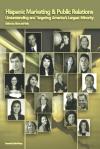Business Spanish Call Center Certification – Improving Customer Satisfaction
Posted by Elena del Valle on August 31, 2006
By Tony Malaghan, CEO, Arial International

Tony Malaghan, CEO, Arial International
Photo: Tony Malaghan
In today’s highly competitive marketplace, call centers are taking steps to provide best-in-class service. If your company is servicing multilingual customers, it is reasonable they would expect to receive excellent service in whatever language they speak. For those servicing US Hispanic customers, only the largest or most specialized companies are able to staff call center representatives to handle all their calls in one language. Most bilingual call center customer service, telemarketing and collection agents in the US handle both English and Spanish calls randomly throughout the day so that companies can meet service level goals, schedule enough agents during peak times and optimize the use of inbound and outbound call center technology. Therefore, these call center agents must be able to competently communicate and be proficient in both languages in the specialized vocabulary of your industry.
Before we begin to address Business Spanish Call Center Certification, let’s first look at one of the most common issues raised by call center managers when talking about the US Hispanic market: call duration, which highlights one of the many differences between this market and the general market. Most managers are aware that Spanish calls tend to last longer, but few are aware of the variety of reasons this occurs:
1. US Spanish speakers are likely to ask more questions about basic steps and processes than English speakers. This is because they may not be as familiar with the products/services and jargon used in the US.
2. English is a more precise and concise language than Spanish. Spanish requires more words to communicate the same idea. In our experience as many as 20 to 30% more words are required to describe business concepts or processes than would typically be used in English.
3. Spanish conversations between people from different backgrounds can complicate business communication. More than 20 countries in the world speak Spanish using a wide variety of pronunciation, accents, dialects and vocabulary. Customers and employees may come from different backgrounds where even simple words such as “to pay” have different meanings from country to country.
4. Call center representatives often spend time translating letters and billing statements from English to Spanish or re-translating poorly written documents. Many companies send all written correspondence in English. This requires employees to spend their valuable time on calls translating or clarifying the content of written documents.
5. Most bilingual employees do not receive in-language industry-specific training. Many bilingual call center representatives’ understanding of Spanish is limited to day-to-day activities, which is very different from conducting a business conversation. Companies must teach bilingual employees how to use accurate vocabulary and in the correct context for their field in English and Spanish.
These are just a few reasons why your bilingual operation differs from your general market operation. So how do companies assure their call centers and call center representatives provide outstanding service in either language and at the same time meet business goals? Many call centers are implementing a Business Spanish Call Center Certification Program to attain “Best Practices”. Certification programs cover all aspects of a business operation, including Management Practices, Technology, Call Monitoring, Measurements, Hiring and Training.
Due to the content limitations of this article, I will discuss one or two of the areas under each of the headings above:
Management Practices
Diversity Training – Bilingual personnel receive Cultural Diversity/Awareness Training to help them understand the cultural nuances of doing business with people from different cultures. This is particularly relevant to the US Hispanic market given the diverse ethnic origins of the group labeled “US Hispanic”.
Handling Escalated Calls – There should be at least one on-site Spanish-speaking Supervisor scheduled per shift to handle escalated calls. Nothing will frustrate a customer more than the inability to effectively communicate to a supervisor about an escalated issue with a product/service or customer service agent.
Technology
Flag on “Spanish Language Preferred” Accounts – Many US Hispanics have a preference for speaking in Spanish. This is particularly the case with high value products/services or where important issues such as personal finances are concerned.
Spanish Language Inbound Voice Response Unit – Translate your entire VRU script into Spanish. Only having some options in Spanish can frustrate those customers who prefer to speak Spanish. Translating the entire VRU script will demonstrate to your US Hispanic customers that you are committed to serving them.
Call Monitoring
Spanish Language Calls are Monitored by a Certified Spanish Speaking Supervisor – A minimum of five Spanish language calls per agent per month should be monitored, evaluated, scored and feedback and coaching provided to the agent.
Calls are Recorded as a Regular Procedure – Spanish language calls are recorded and used for training, evaluations and coaching. These are especially useful to provide feedback to agents during their performance evaluations.
Measurements
Hold Time – Hold time for Spanish-speaking inbound customers is the same as or less than for English language customers.
Incentives – Spanish speaking agents are eligible for incentives based on the calls they handle and are not penalized for handling Spanish language calls.
Hiring and Training
Bilingual Certification Program for Employees – Employees complete a “Business Spanish” certification program that includes: a pre-training assessment, a training seminar, a detailed, industry-specific glossary, testing and a post-training certification assessment.
1. Pre-assessment of verbal communication skills
Telephone agents are assessed on their Spanish language proficiency. Pronunciation, basic grammar, verb conjugation, proper use of feminine and masculine articles, sentence structure, vocabulary and use of formal business communication are some of the areas assessed. Agents are tested and scored based on their language proficiency. Those that “pass” the assessment are recommended for “Business Spanish” training. Those that do not meet the minimum requirements are not recommended to handle Spanish language calls and are encouraged to further study the language.
2. “Business Spanish” Training
Business Spanish training, conducted in Spanish by a native speaker, is customized for each industry and each job function. Written materials and instruction are provided in Spanish. The three primary objectives of the training are:
1. Refresh participants on the proper use of formal business communication rules in Spanish by using true-to-life examples and situations that call center representatives encounter every day;
2. Improve and expand the vocabulary, industry-specific terminology and phrasing that the agents require to communicate effectively; and
3. Reduce call duration and the number of calls escalated to supervisors.
3. Written and Verbal Communication Testing
After the training session agents are tested on the skills and terminology they learned to ensure they retained and can correctly apply the new skills and vocabulary. Depending on the level of Spanish proficiency required, agents receive testing as verbal-only, written-only or a combination of the two. The agents that pass the test with a score of 80% or better are eligible for certification.
4. Call Monitoring
The final step is immediately conducting call monitoring of live interactions between agents and customers to confirm that agents are, indeed, applying their newly learned skills. Usually about five calls, or 30 minutes of monitoring per agent, are sufficient to recommend eligibility for certification.
Typically, as with most business decisions, deciding to certify your call center comes back to ROI. In part two of this article I will address some common questions and the resultant benefits of Business Spanish certification of your call center.
Arial International, in business since 1992, is a multicultural, multilingual firm that assists companies in targeting and retaining US Hispanic customers. The firm is recognized as the leader in delivering “Business Spanish” services including language assessments, translations, bilingual training, certification programs, consulting projects and E-Learning. The firm has trained over 25,000 professionals in 30 countries with an emphasis in the US and Latin America.
© 2006. Arial International.
This article has been printed with permission from Arial International.
For more information please call 888-446-2331, send an e-mail to info@arialinternational.com or visit us on-line at www.arialinternational.com.
Hispanic Marketing and Public Relations book

To purchase a copy of the Hispanic Marketing & Public Relations book featuring “Effective Translations,” a chapter by Tony Malaghan, CEO, Arial International visit the HispanicMPR.com Resoures Section










This is an excellent article. The principles described may be applied to other settings where bilingual staff interacts with Limited English Proficiency (LEP) populations. Institutions and providers delivering health care services are definitely grappling with these issues. I am involved, in fact, in promoting a web-based program that offers cultural competency training to family physicians and other primary care providers. There is a focus at the national, state, and local level to improve communication between health care providers and LEP patients.
A side note: as a bilingual and bicultural individual (Spanish/English and American/Latina), a writer, and a social marketer, I am keenly aware of the differences between English and Spanish composition. The bottom-line thinking built into English is at odds with the Hispanic approach to persuasion. Whereas English favors a brief synopsis of the main idea delivered right away; Spanish favors a description of factors that support the main idea before the conclusion is articulated. Native English speakers grow impatient when they hear a native Spanish speaker go on and on before delivering the bottom line. Native Spanish speakers assume that a bottom line makes no sense if one does not first understand the context and reasoning that support whatever claim is made.
English is precise; fast; and compact. Individuals who communicate with LEP customers, for example, need to become aware of the English language’s inherent bias; and consider how to broach key differences. Patience (ie – more time allocated to interaction) may appear inefficient at first; but in the long run, patience is necessary for respectful listening, a key element of effective communication.
Lilia,
It’s the first time I read such a practical and accurate analysis of the linguistic differences and their meaning. Thanks!
Elena
i need help with learning spanish
i invest one call center in my country morocco for spanish service call center use only with 50 operator and now iam looking for client to provide him a very good quality service satisfaction
Good Article… love to hear any recommendations to on Spanish Call Centers whom specialize in Hispanic Call centers. thanks in advance.